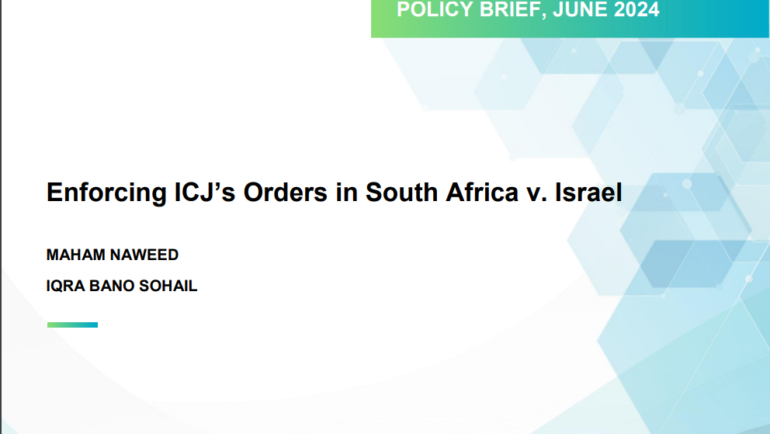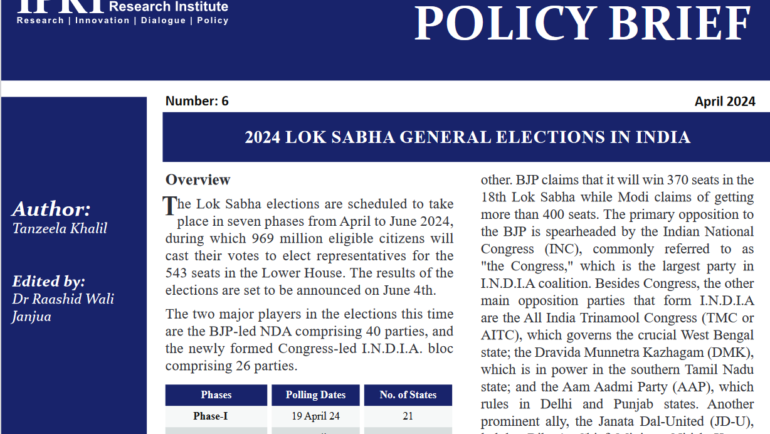Policy Brief 19/09/2025
Agriculture contributes 24 percent to Pakistan’s national economy and employs 37.4 percent of the workforce. Despite this strong agricultural base, the bioeconomy’s share in national output remains among the lowest globally. This shows a wide gap between the available bioeconomy resources and their effective utilisation. Based on national statistics, sectoral reports, and existing bioeconomy literature, this Policy Brief examines the systemic challenges constraining Pakistan’s bioeconomy and outlines actionable solutions to unlock its potential.
The Brief highlights that annually an estimated PKR 500 billion worth of agriculture produce is lost at post-harvest stage. Agricultural inefficiencies, such as water insecurity and outdated seeds, continue to hinder productivity. Weak regulatory systems, moreover, prevent biotechnology from reaching farmers and industry. In Pakistan, energy tariffs are also among the highest in the region, undermining competitiveness of its biomass-processing industries.
The findings suggest that, by aligning Pakistan’s bioeconomy strategy with global best practices and leveraging its natural comparative advantages, the country can transform agricultural residues and biological resources into value-added products such as biofuels and biopharmaceuticals. This may strengthen Pakistan’s food security and rural employment and reduce fossil fuel dependence, increase exports while building resilience against economic shocks.


